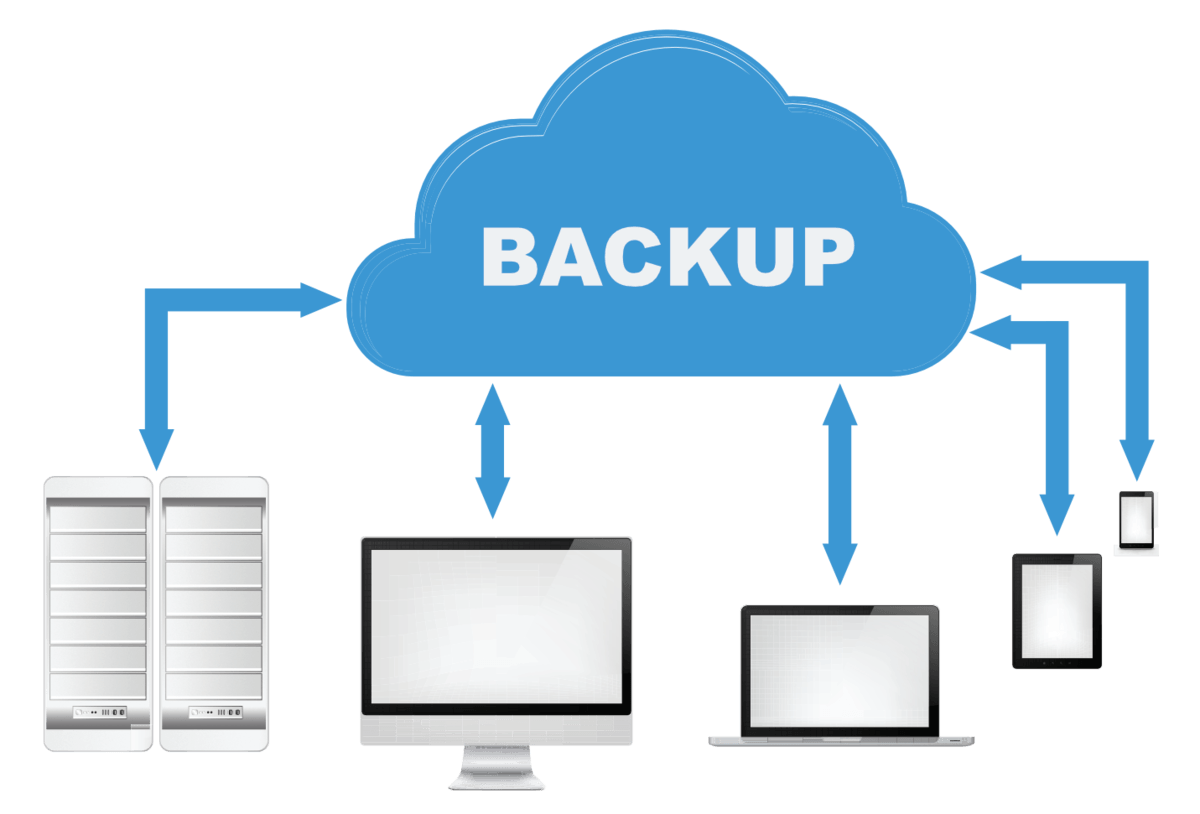Robust Secured Backup Recovery Tactics
Data has become essential to businesses in today's digital age. Losing any of this crucial information, including customer, financial, and operational data, can have dire repercussions. Small businesses require a dependable, secure backup option that can effectively protect their data because of this. Small businesses can benefit greatly from cloud-based backup because it offers flexibility, scalability, and comfort.
- Understanding cloud-based backup
- Benefits of Small Businesses ' Cloud-based Backup
- Features of cloud-based backup solutions' security
- Selecting the best Cloud-based Backup Service
- How to set up Cloud-based Backup for Your small business
- Automated Backup vs. Manual Backup: Which is Better?
- Cloud-based Backup to Reduce Downtime
- Using a cloud-based backup to ensure data compliance
- Using a cloud-based backup to access and restore data
- Disaster recovery planning with cloud-based backup
- Comparing cloud-based backup to on-premise backup solutions
- Cost-effectiveness and Scalability of Cloud-based Backup
- Overcoming Common Obstacles in the Implementation of Cloud-based Backup
Understanding cloud-based backup
The process of storing data on remote servers accessed via the internet is known as cloud-based backup. Businesses can securely store and access their data whenever and wherever they want, as opposed to relying on physical backup tools like hard drives or tapes. The possibility of hardware failure, theft, or loss is eliminated as a result.
Dynamic Types Of Cloud Backup Key Features

Benefits of Small Business Cloud-based Backup
For small businesses, cloud-based backup has a number of benefits. It offers automatic backups, guaranteeing ongoing data protection without the need for human intervention. Additionally, cloud-based backup enables simple scalability, allowing you to expand your storage space as your company expands. Additionally, it lowers the price of hardware upgrades and maintenance.
Cloud-based backup solutions' security features (Mail Server)
To safeguard your data, dependable cloud-based backup solutions provide strong security features. To make sure that only authorized people can access it, these include encryption, both during transit and at rest. Multi-factor authentication, for example, adds an additional layer of security to advanced authentication techniques. To ensure the integrity of the data, routine audits and compliance certifications are also required.
Uninterrupted Database Server Expert Opinions

Selecting the best Cloud-based Backup Service
Implementing Cloud-based Backup for Your small business: Steps
There are several steps involved in implementing cloud-based backup. First, carefully evaluate your data storage needs and pinpoint important data that requires backup. After that, pick a reliable cloud-based backup service provider and work out an agreement. Choose suitable retention policies and set up backup schedules. To ensure data recoverability, monitor and test your backups on a regular basis.
Innovative Online Backup Linux In 2024
Automated Backup vs. Manual Backup: Which is Better?
Automated backups are provided by cloud-based backup systems and are much more dependable than manual ones. Human error is eliminated by automated backups, which also guarantee that data is consistently protected without manual intervention. It reduces the likelihood of data loss brought on by forgetfulness or negligence while saving time and resources.
Using cloud-based backup to reduce downtime
The ability to minimize downtime during data loss events is one of cloud-based backup's key benefits. Businesses can quickly recover lost data and resume operations with regular backups kept in the cloud. The effect on productivity and customer satisfaction is reduced as a result. The downtime will decrease as the data restoration progresses.
Scalable Cloud Backup For Telecommunications User Experiences
Using a cloud-based backup to ensure data compliance
Depending on their industry and location, businesses must abide by a variety of data protection laws. By providing data encryption, access controls, and audit logs, cloud-based backup solutions can assist in achieving these compliance requirements. To avoid legal repercussions and safeguard sensitive customer information, it is essential to choose a provider who abides by pertinent industry standards.
Accessing and restoring data from a cloud-based backup
Accessing and restoring data whenever necessary is simple thanks to cloud-based backup solutions. With an internet connection, authorized users can access files and folders from anywhere. Businesses can quickly recover their crucial information in the event of unintentional deletion, hardware failure, or cyberattacks thanks to the data restoration process, which is typically simple.
Real-time Pros And Cons Of Online Backup Disadvantages
Disaster recovery planning with cloud-based backup
Disaster recovery planning heavily relies on cloud-based backup. Businesses can safeguard their data from physical disasters like theft, fires, and floods by storing backups off-site in secure data centers. Businesses can quickly recover their crucial information and resume operations in the event of a disaster thanks to the cloud-based backup.
Comparing on-premise backup solutions to cloud-based backup
Compared to conventional on-premise backup solutions, cloud-based backup offers a number of advantages. Cloud-based backup eliminates the need for pricey hardware investments and ongoing maintenance. Additionally, cloud-based backup offers more accessibility, scalability, and flexibility than on-premises backups, which are constrained by physical infrastructure.
Modern Remote Data Backups Solutions
Scalability and Cost-effectiveness of Cloud-based Backup
Businesses can scale up or down their storage capacity using cloud-based backup solutions because they are so scalable. Small businesses can afford it because of its scalability, which guarantees that they only pay for the storage they need. Additionally, cloud-based backup makes it unnecessary to buy extra hardware or spend money on It infrastructure.
Overcoming Common Obstacles in the Implementation of Cloud-based Backup
Even though cloud-based backup has many advantages, small businesses may find it difficult to implement. Large data volumes, potential bandwidth restrictions during peak hours, and the requirement for consistent internet connectivity all contribute to slow initial backups. But with the right planning, monitoring, and backup provider selection, these difficulties can be reduced.
Secure Backup Solution For Mac Time Machine Expert Opinions
Important Notes:
Small businesses can benefit from flexibility, scalability, and peace of mind thanks to cloud-based backup.
For cloud-based backup solutions to protect data, security features like encryption and authentication are crucial.
For data protection, it is essential to pick a reputable and trustworthy cloud-based backup provider.
- Data assessment, provider selection, configuration, and monitoring are all components of cloud-based backup implementation.
- Cloud-based solutions' automated backups are more dependable than manually performed copies.
- Cloud-based backup facilitates quick data restoration and lowers downtime during data loss events.
- Security measures for cloud-based backups can be used to comply with data protection regulations.
- Cloud-based backup makes it simple to access and restore data from any internet-connected location.
Offsite backups provided by cloud-based solutions improve disaster recovery planning.
- Cost-effectiveness and scalability are advantages of cloud-based backup over on-premises solutions.
Businesses only have visit this website to pay for the storage they require thanks to cloud-based backup's scaleability.
- With careful planning and selecting the right provider, common obstacles to implementing cloud-based backup can be overcome.
For small businesses, data loss can have serious repercussions. You can safeguard your important data and guarantee business continuity with cloud-based backup.
Key Takeaways or a related term
- Cloud-based backup reduces the risk of loss and ensures data protection.
- Cloud-based backup solutions are adaptable and scalable, and they help small businesses.
Data integrity is ensured by security features like encryption and authentication.
For dependable cloud-based backup services, selecting a reputable provider is crucial.
Data assessment, provider choice, and configuration are proper implementation steps.
- Automated backups save time and lower the chance of human error.
- Cloud-based backup makes it easier to restore data quickly and reduces downtime.
- With cloud-based backup, compliance with data protection regulations is possible.
- Cloud-based backup solutions make it simple to access and restore data.
- Cloud-based backup's offsite storage improves disaster recovery planning.
In terms of cost and scalability, cloud-based backup offers advantages over on-premise solutions.
- Scalability guarantees next cost-effectiveness in the implementation of cloud-based backups.
- With careful planning, difficulties like slow initial backups can be overcome.
- Successful cloud-based backup implementation depends on reliable internet connectivity.

